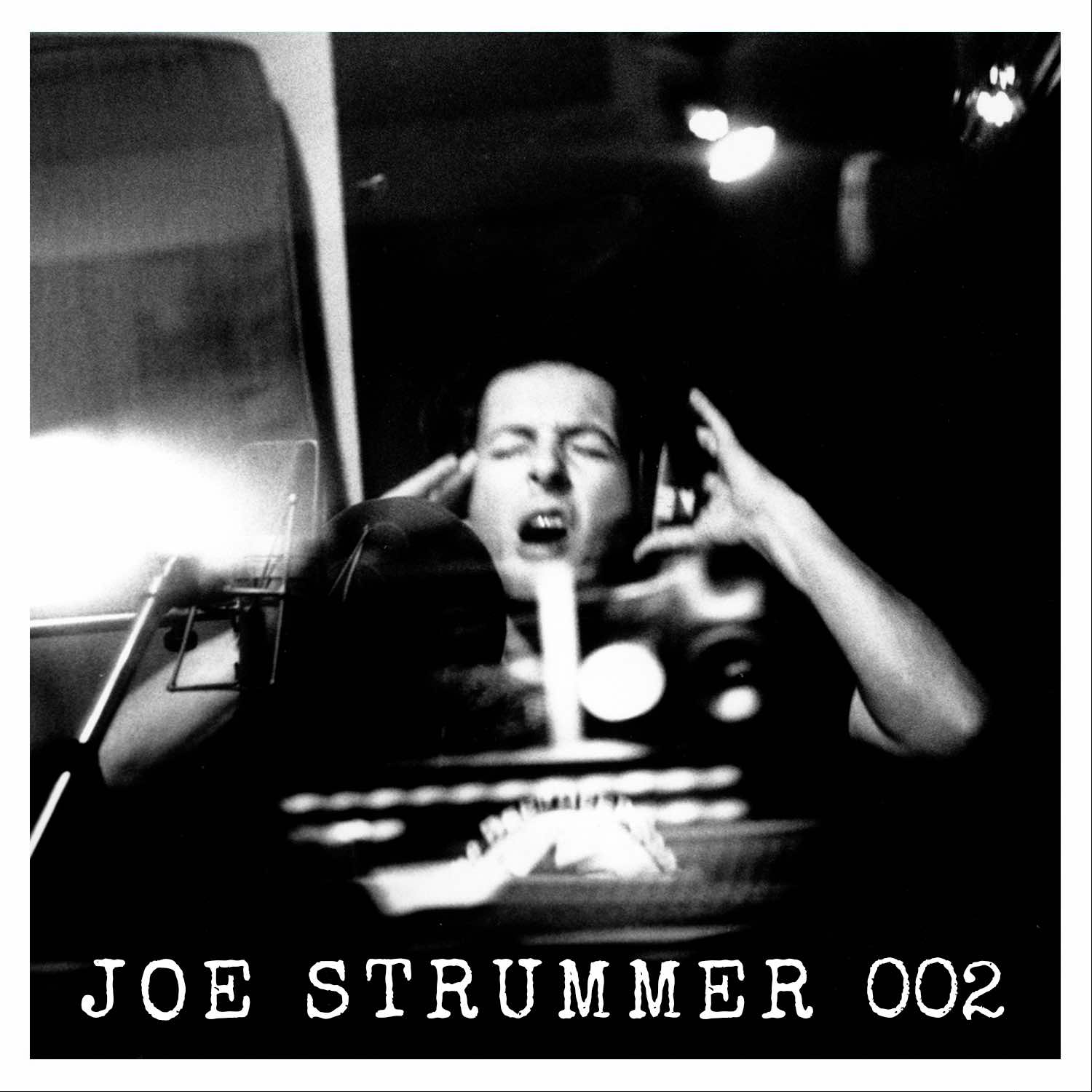Joe Strummer
002: The Mescaleros Years
DARK HORSE
Time has not always been kind to The Clash and its frontman, the late Joe Strummer. Though never lacking in punk-godfather status, some of the shine has worn off the last gang in town’s socio-political stances and its white-boy leaps into Black idioms such as hip-hop, funk, and reggae. Strummer’s solo career, too, has often gotten lost in the haze of various indie labels—a mixed-bag, ethno-musicality that existed from the time following the final Clash album (1985’s genuinely awful Cut the Crap) to his passing in 2002. From 1999 on, his second great band, The Mescaleros—guitarist Antony Genn, bassist Scott Shields, percussionist Pablo Cook, and other assorted Brit instrumentalists—became Strummer’s primary means of interpreting his often free-associative, occasionally hyper-Guthrie-like lyricism with their own drunky brand of Pogues-meets-Bad-Seeds intensity and theatricality.
The newly released, multi-disc 002: The Mescaleros Years collects albums that were part of the Mescaleros catalog (1999’s Rock Art and the X-Ray Style, 2001’s Global a Go-Go), one nearly ready at the time of his sudden death (2003’s Streetcore), a collection of odds, sods, and demos (Vibes Compass), and a nicely illustrated booklet designed to better complete the whole solo-Joe picture. What’s best to remember, always, is that Strummer was never looking to re-make The Clash, but rather to confound the expectations of his audience and expand his own horizons.
What’s interesting—and a little sad—about the trajectory witnessed through 002 is that by the time of that third Mescaleros album, Strummer and company had finally settled into a unique groove roughed up by Strummer’s punk-folkish roots. While Rock Art finds the still-new team making worldly rhythmic rock below Strummer’s dense refrigerator-magnet poetry (Global is similar, if not for some acoustic folk thrown into its West Indian/Latin percussion-driven mix), Streetcore is where they caught fire. Driven more directly by rocksteady Jamaican rhythms than they were on their first two albums, and with The Clash’s old friend Tymon Dogg as part of the ensemble, the group head loudly into a mix of fired-up garage-punk with deep reggae accents.
Less obliquely poetic than on its preceding discs, Strummer is amped as he cough-cackles his way through guitar-driven cuts such as “Coma Girl” and “All in a Day.” Bringing socio-consciousness and poli-sci rabble-rousing into his lexicon, he really puts his back into raging anthems such as “Arms Aloft” and “Burnin’ Streets,” the latter without losing the dub-rocksteady pulse that Streetcore pursues. Lest audiences think this is London Calling reborn, Strummer takes Dylan-esque expressionist fanaticism and fandom for Americana to its uniquely poetic extreme on tracks such as “Long Shadow” (rumored to have been written for Johnny Cash). More inspired and inventive than anything since Sandinista!, Strummer with the Mescaleros nailed it on Streetcore, even closing out with a Bobby Charles cover that winds up as an elegy when Joe hits the line, “I've got to hurry up before I grow too old.” If you don’t well up and drip a tear in your beer here, buddy, you’re not living.
Rather than solely collect this grouping’s demos and previously unrecorded cuts such as “Fantastic,” the Vibes Compass disc offers up everything from a mellow-harshing rave-up—“Ocean of Dreams,” recorded with fellow school of ’76 punk alum Sex Pistol Steve Jones on guitar—to a curt, quaint cover on blue-eyed soul man Johnny Rivers’ spy-classic “Secret Agent Man.” Fifteen tracks that are worthwhile to collect and have in one place.







